Campus Conditions Cause Concern
April 25, 2022
Some students at NJCU are worried about infrastructure on the main campus and how it is affecting them–including cold classrooms, leaky ceilings, problems with elevators, issues with hot and cold water, and more.
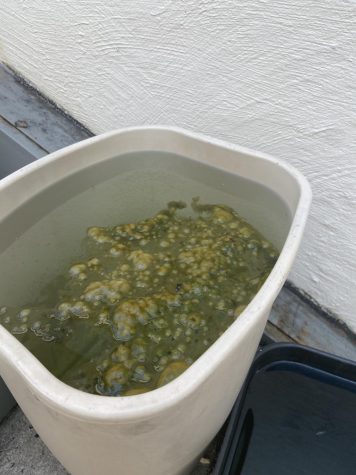
The Gothic Times spent several weeks talking to students and staff, as well as visiting buildings to investigate a variety of issues. We saw a cracked window repaired with tape, holes in the wall, and stained ceilings. In the Visual Arts Building (VAB), The Gothic Times observed two buckets on a stairwell filled with water from leaks. In one, there was bright green growth on the surface. The water has since been removed.
We heard stories about classes being canceled or moved to Zoom because of the temperature, and mushrooms growing on the second floor of West Campus. Ruth Diegue, the chairwoman of the Residence Hall Association, said of the mushrooms, “Every time they are removed, they come back.”
Katha Patel, a sophomore Biology major, said that her lab class in the Science Building had to be dismissed early in early April: “We did not have our lab because the room was too cold.”
Some students in Rossey Hall and the VAB said they’ve seen roaches, and a student in Vodra Hall said they saw a mouse at one point. Administrators said that exterminators come to campus once a week.
At one point, The Gothic Times saw caution tape in multiple spots in Grossnickle Hall, floor tiles removed in Fries Hall because of persistent leaks, and even a handwritten note on a classroom door in the VAB announcing that there would be a room change because of the “extreme heat.”
Patel said, “They should look over all the problems here on main campus before expanding to other campuses.”
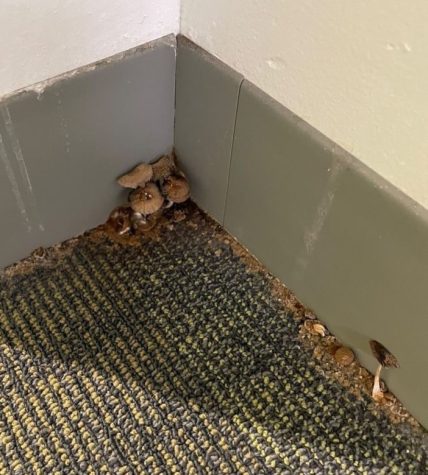
Ron Hurley, associate vice president of Public Safety, has been overseeing facilities at NJCU. Hurley said, “Yes, we have had some issues related to our facilities but are getting a handle on things. Temperature fluctuations are common this time of year because of the change over from heating to cooling. As for leaking ceiling tiles, elevator issues and hot and cold water issues, we address each complaint as we receive them. However, we’ve had a few instances where it has taken a little longer than expected to make these repairs. In those cases where we encounter delays, it is usually because we were waiting on parts and or there was a scheduling conflict with our contractors.”
Hurley also said, “As for the mushrooms/fungus, this was attributed to moisture and was taken care of immediately.” Regarding where the moisture came from, Hurley said, “The source of the moisture was undetermined, we will continue to monitor.”
Ira Thor, senior director of University Communications, said that the caution tape in Grossnickle was only there because of old lockers that were removed from those spaces: “The caution tape was in the area surrounding where the aging lockers were once located prior to their removal. The tape has since been removed. We are in the process of closing that space.”
The Student Government Association (SGA) met with Hurley in early April to discuss concerns that students had brought forward.
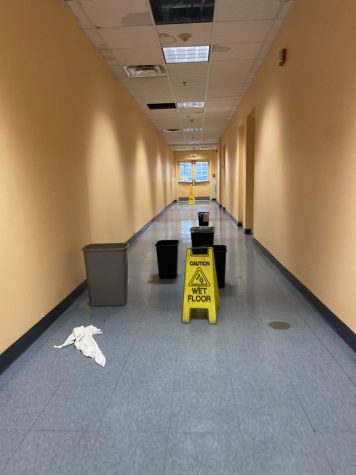
Thyquel Halley, the SGA president, said, “SGA has received a plethora of complaints across campus regarding facilities issues throughout this academic year. Myself and the VP of Internal Affairs have worked diligently to address these matters. Some have consisted of broken/malfunctioning elevators, no hot/cold water available in some bathroom sinks, no heating in residence halls throughout the winter, Wi-Fi outages, growing of mushrooms in WCV, leaks, and holes in ceilings in Vodra, and even classrooms/labs missing ceiling tiles.”
Halley also said, “SGA continues to work hand in hand with Student Senators and RHA to identify and address these issues before we meet with administration to bring them up. Over the summer RHA & SGA will be living on campus and one of the priorities is to do walk-throughs of the residence halls & other buildings on campus to see what maintenance and repairs are needed to make the administration aware of the issues at hand.”
Ameelah Carvin, the SGA vice president of Internal Affairs, met with Hurley regarding student concerns. “Students have been vocal when it comes to telling the E-board what they like and don’t like about campus life.” Carvin said of the meeting, “We have been assured these issues will be fixed as soon as possible.”
Carvin also said, “In a few weeks we will meet with Ronald Hurley and his team again to talk about what has been resolved and what hasn’t, and, in the meantime, we are still listening to student concerns.”
NJCU renovated the Science Building in 2017. Other improvements have been made to the Margret Williams theater, areas within the John J. Moore Athletics and Fitness Center (JMAC), and the Gothic Lounge. At the March Senate meeting, president Sue Henderson noted plans for the renovation of the Grossnickle Hall elevator, the JMAC pool, as well as the OSP office in Vodra Hall. Damage from storm Ida in early September was quickly addressed, according to staff in affected areas.
Thor said, “We are still working to establish the timing of the elevator repair [in Grossnickle Hall]. Grossnickle is a priority for short, mid, and long-term repairs and renovations.”
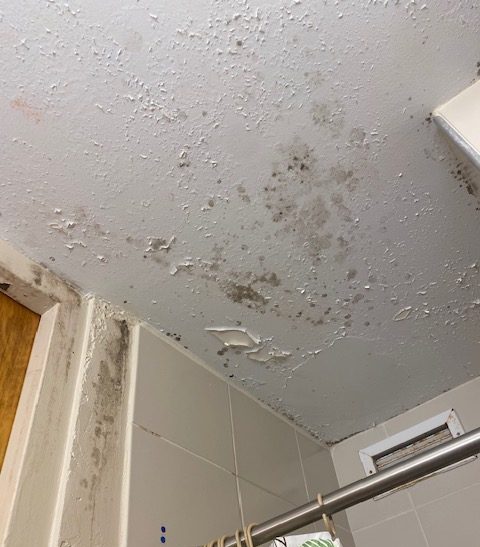
“The Temperature In This Building Is Never Correct”
In the VAB, some classes were disrupted in mid-March for being too hot. One student told us that their class was moved to Zoom for the day. The Gothic Times observed a note on a classroom door indicating a room change “because of the extreme heat.” (The VAB opened nearly 20 years ago in 2003).
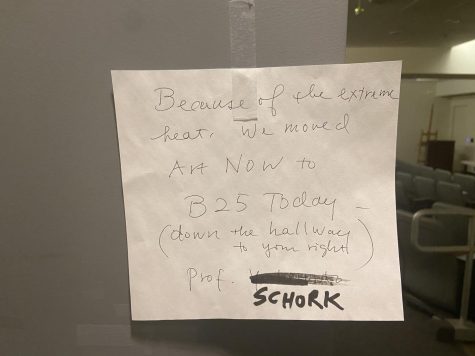
Alec Kucure, a junior Illustration major, said, “This building is very hot, especially in the basement,” about the VAB.
Dalenys Drugas, a freshman fine arts major, said “The temperature in this building is never correct,” about the VAB. Drugas also said, “If it’s hot outside, it’s still hot inside because they don’t take the heater off.”
Hurley said, “In the case of the Visual Arts Building we had an issue with the HVAC system and were waiting on replacement parts.”
Another student said the same about the Science building. They said, “It is either too hot or too cold.” Many students have also reported that Karnoutsos Hall is usually cold in the winter.
One student reported that, in March, one of their classes was dismissed early in Rossey Hall by the professor because it was too cold.
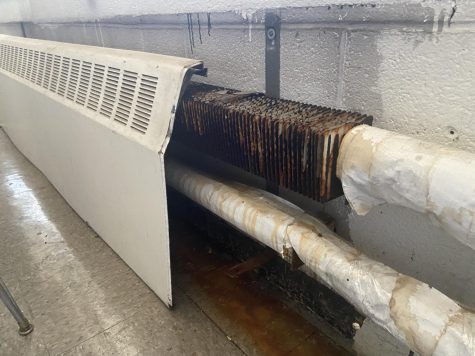
In mid-February, the library was closed halfway through the day because of heating issues. This resulted in the tutoring center, the HUB, having to temporarily relocate for the day. An email from NJCU said the library was closed because of “an issue with the library’s heating system and associated maintenance. Repairs are currently being conducted.” This was resolved by the next day.
The main door for the Gilligan Student Union Building (GSUB) was open all day with temperatures near freezing from January 31 into February 1. Some students reported that this made it cold in the building. Patrick Bartole from the Department of Facilities Management said that the situation was being monitored and that staff were trying to close the door manually. The doors were repaired on February 1 toward the end of the day, and Bartole said that the issue was caused by a “faulty exterior sensor.”
At the beginning of the school year, The Gothic Times reported on complaints about excessive heat in Fries Hall and the VAB. A thermometer read 86.1 degrees in a Fries hallway in mid-September. Students said the heat was distracting and even made them feel sick. Students and faculty were also concerned about the potential spread of COVID in the hot environment.
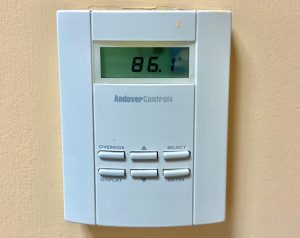
The Gothic Times observed rusted radiators in Grossnickle, some of which appeared to be falling apart. Thor said, “The radiators in Grossnickle are operational. The rust is cosmetic and will be addressed once the locker area work is completed.”
Extreme Water Temperatures—Only Cold, or Only Hot
Reports from the VAB said that there was only hot water in the silkscreen studio for a while. A senior graphic design major who took a silkscreen class in the fall said there was only hot water in that room. They said “When I had that class, we can’t really use hot water… There was no cold water or anything.” They explained that hot water washes out what students expose onto the silkscreens and that the screens are very expensive.
Longstanding issues with a lack of cold water and excessively hot water have also meant some photography students have issues with developing their film.
One student taking a ceramics class said that there was no hot water in the ceramics studio at the beginning of the semester: “At the beginning of the semester, we only had cold water.
Hurley said, “The issue with the cold water at VAB is not related to the HVAC system and is an issue that has taken longer to resolve than expected, we now have a good idea as to what the problem is and are scheduling a repair.”
Leaks and Stained Ceilings
There are stained ceilings in numerous buildings that appear to come from leaks including Fries, Rossey Hall, and the VAB.
The main hallway in Fries was leaking off and on for most of the school year. Small trash bins were seen in new locations every week to catch water with sometimes up to three bright yellow “wet floor” signs lining the center of the hallway.
Thor said, “Two issues were identified [in Fries Hall]. One was a plumbing concern and that has been repaired. The second is a roofing issue and a repair is pending. The floors will be repaired in the next few weeks with new flooring.”
There have also been leaks in the Hepburn hall admissions office which was in the process of being repaired in early April.
Storm Damage and Floods
When Storm Ida hit at the start of the school year, flooding affected the entire state including NJCU. A few buildings experienced notable water damage including Hepburn and Karnoutsos Hall. Staff said NJCU handled related damages well.
Christina Rolon, program director for the TRiO Learning Community (TLC), said she did not see the flooding in the TLC office but when she returned after the storm, the floors were “very damp” and made a “slush sound.”
The TLC office was temporarily relocated to the library near the Hub, NJCU’s tutoring center. Rolon said, “The school was very good in coming by to test for mold.” There was no sign of mold. Rolon also said the floors were repaired on time with the estimated date in early November that the school gave the office. Rolon explained that they did not return to the office until the end of November in order to ensure “everything was moved back and the internet was connected to all the computers.”
The Children’s Learning Center (CLC) on Hepburn Hall’s first floor also endured flooding from the storm. Ana Aponte, director of the CLC, said. “They [NJCU] warned us as the rain was coming down that night that it was flooding.” Aponte said this allowed the center to ensure that parents would be aware if they had to be closed the next day.
Aponte said, “We did not see it [the flooding] but we came in afterward to clean.” Aponte said that housekeeping did much of the cleaning and there was not really much damage aside from roughly three cubby storages.
The CLC was closed for less than a week. Aponte said they were able to return after Labor Day. Aponte said the space was deemed to be safe by the state and that the center would not have been able to relocate if the damage was more severe because it is the only space on campus designated by the state for children to be.
Issues in the Residence Halls
The Residence Hall Association (RHA), run by students as a part of SGA, held town halls this semester where some students expressed concerns about problems with temperature/thermostats, elevators, and laundry facilities. Residence life officials said that students are able to change their rooms through work orders.
The Gothic Times reported in 2020 that West Campus had heating and hot water issues from the very year it opened in 2016 based on email communications sent to students.
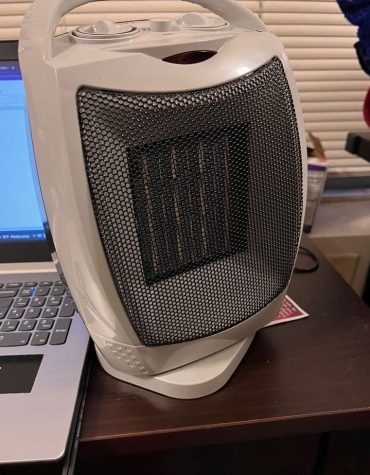
At least two students have reported that there were about three days at the start of the spring semester where there was no hot water in West Campus.
Josiah Ramkellewan, a junior Media Arts major, said that his room had no heat in late March: “There’s a problem with my thermostat. Mine is completely broken. Right now my room is cold. It is off completely.” He said that when he would take showers, he would have to dress quickly and in layers just to stay warm. Ramkellewan also said, “Me and my suitemates, we’ve all been sleeping in long sleeves until it’s fixed.” Ramkellewan said that his suite was given space heaters until the issue was fixed.
An email sent to resident students in Vodra Hall encouraged them to go home over spring break. The email read, “At this time, the boilers are being repaired and you may experience issues with heat and hot water. Since we entering spring break we are encouraging everyone to go home during this time. If you are planning on staying on campus for the break be aware that you may have issues with the heat and hot water. You are able to utilize the showers in Co-Op hall and if you are having issues with the heat, please let us know so we can assist you with temporary relocations if needed.”
Students aren’t the only ones who have worries about the conditions at NJCU. A parent commented on The Gothic Times website about a cracked window in West Campus and other problems. They said, “The food is limited with one dining hall still not open, the west campus building is in need of so many repairs with my daughter’s window still cracked and held together by tape… I think the kids pay quite a high price for housing and food that doesn’t equal the value. This is where you need to start focusing if you want to increase enrollment. Quality of life on campus needs to be more of a priority.”
Inconsistent Elevators
There have been reports about issues with elevators across a few buildings including West Campus, GSUB, and the Science building.
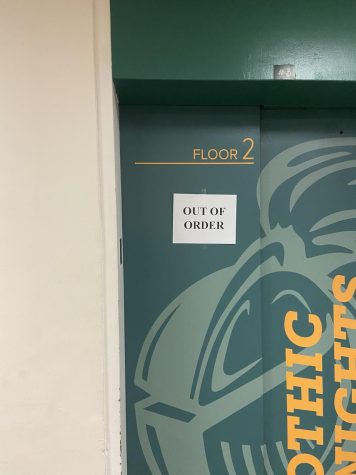
A student posted on the NJCU Mobile app on March 21 pleading for the elevators at the West Campus residence hall to be fixed: “Can somebody PLEASE FIX THE ELEVATORS AT WEST? It has been at least three weeks and they still don’t work right.” The elevators have since been repaired.
Ramkellewan described how the elevator situation in West Campus impacted him. “We couldn’t get it from downstairs. We had to go upstairs from the second or third floor to send it downstairs for anybody. It was a struggle for me too. There was a time I came back from grocery shopping and I was like ‘oh man, the elevator is broken’ and I had a bunch of stuff and the cart coming in. I had to ask somebody to go upstairs to send it down for me.”
On February 7, the center elevator in GSUB was down for the day with “out of order” signs taped to the doors. It was reopened by the next day, but some students have reported that the elevator sometimes rattles when it gets to the top.
At least two students have also reported to The Gothic Times that there was an issue in the Science Building where the elevators were moving while the doors were still open.
Patel, a sophomore Biology major, said that for the first two months of the semester, only one elevator was working in the Science building. Patel also said, “The elevator was not stopping level with the floor.” She explained that it was either a little above the floor or a little below.
Thor said, “The issue with the elevator [in the Science Building], caused by a faulty part, has been resolved.”
Shahod Augustin, a freshman Business major, said, “I feel like the school should address these issues because it affects our education.”
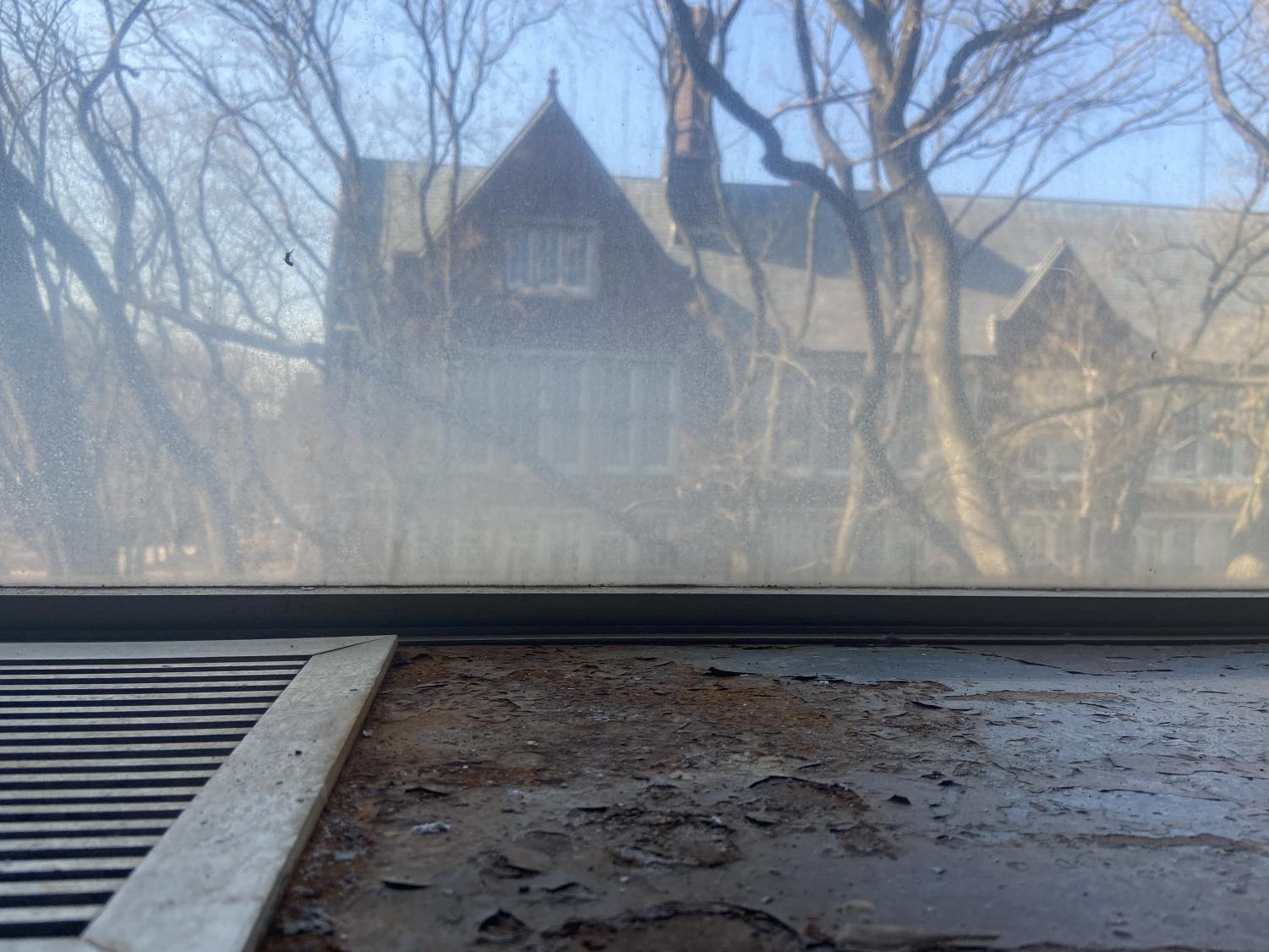
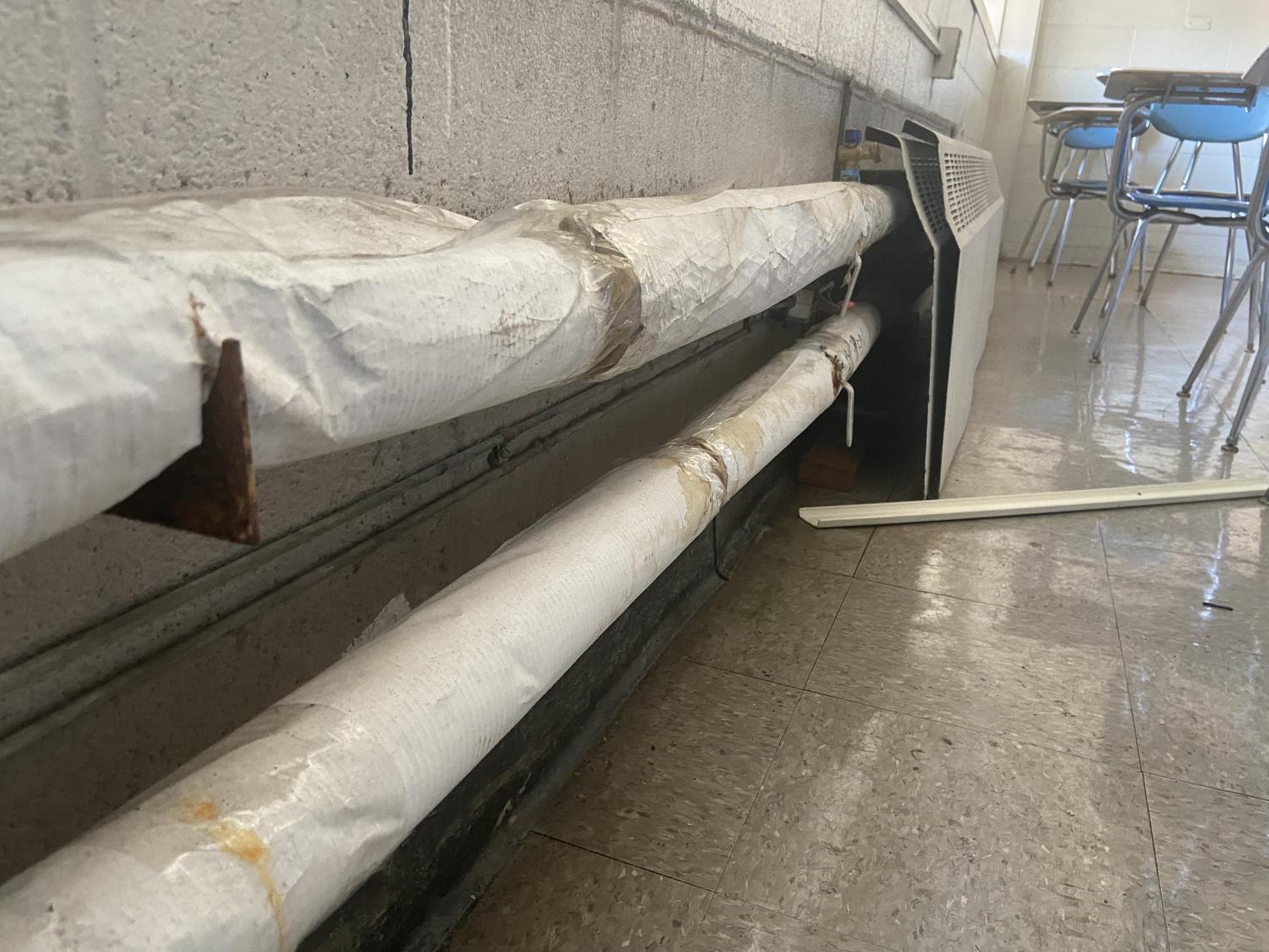
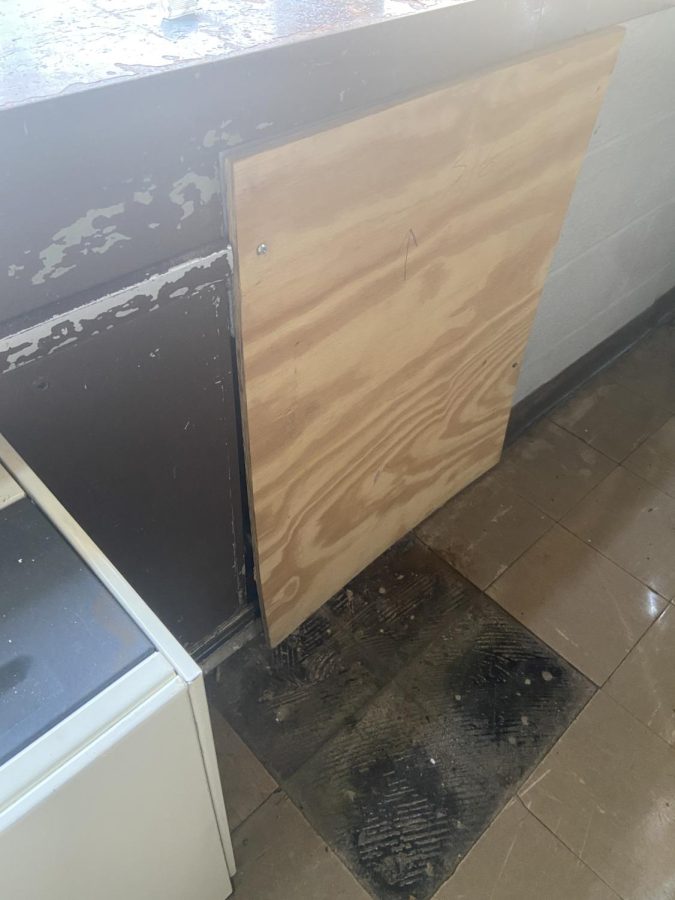
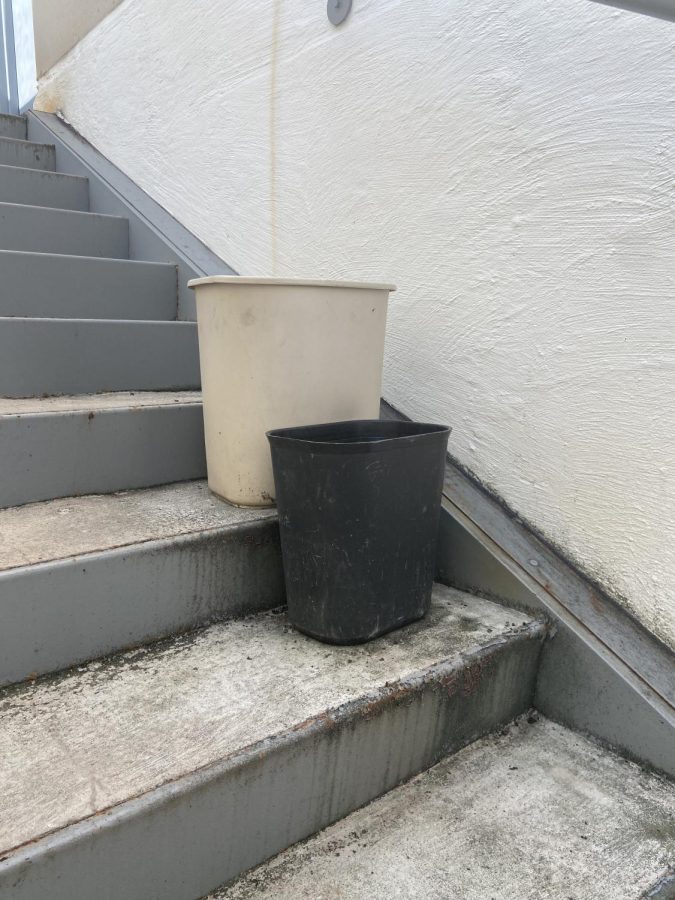
Additional reporting by Nicholas Felix.



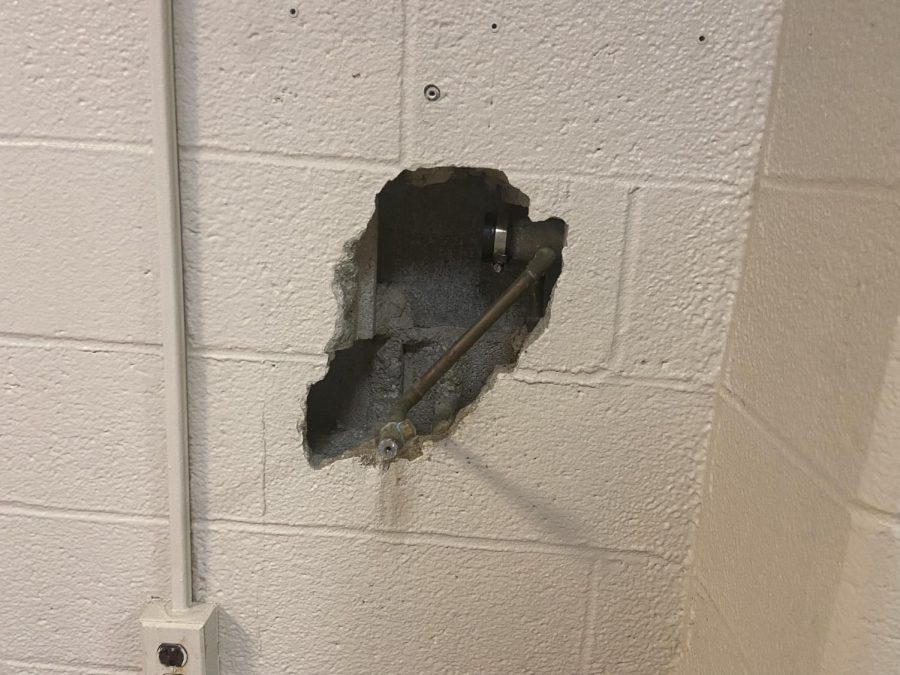
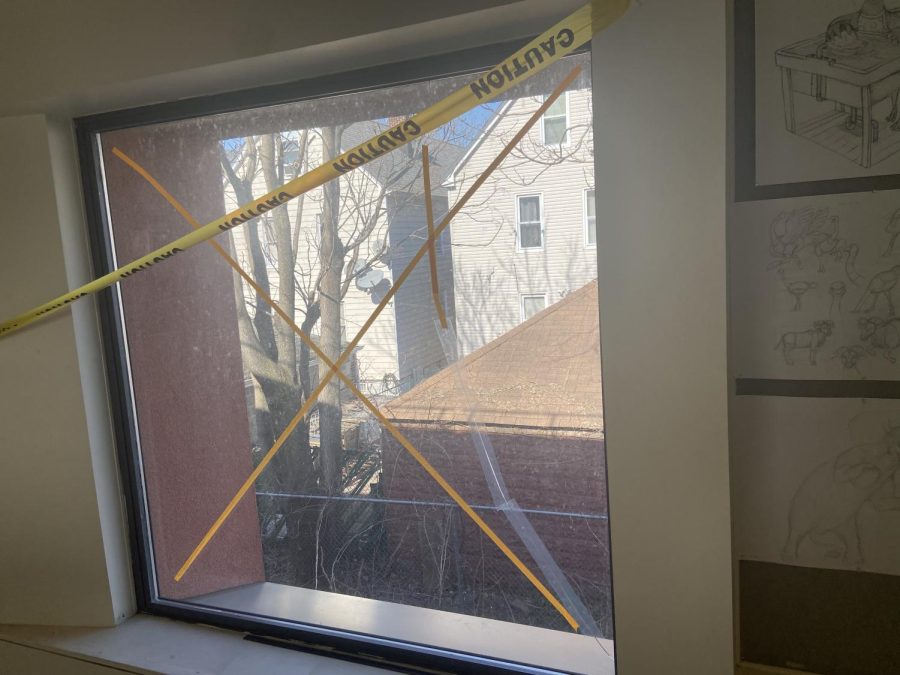
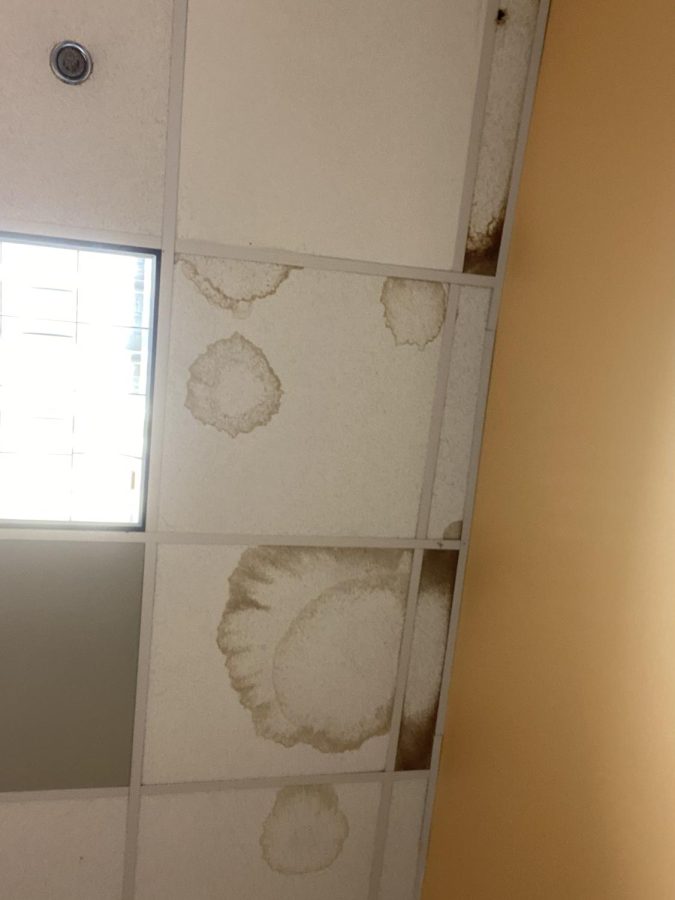
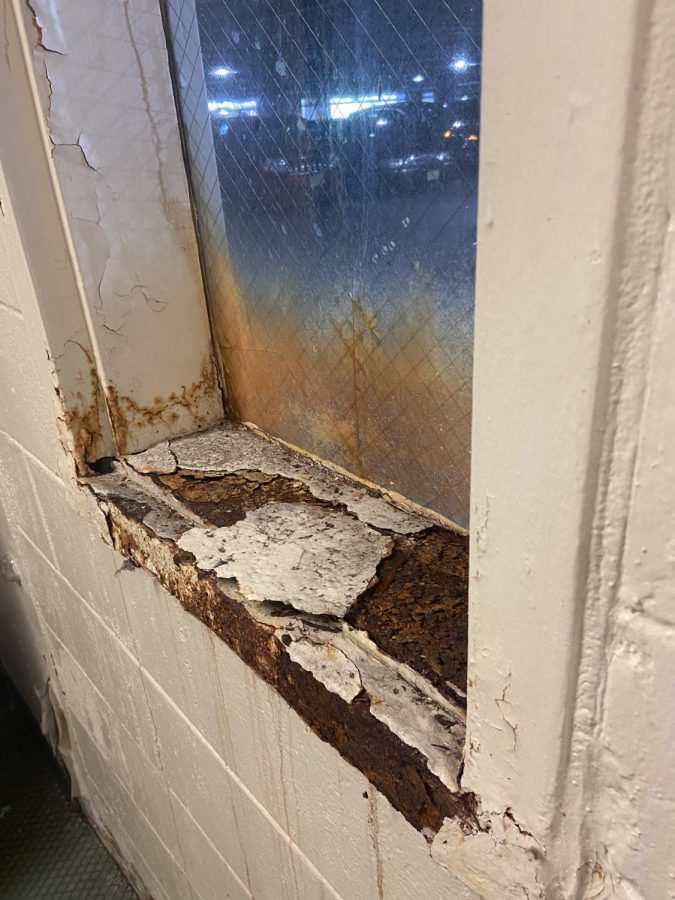
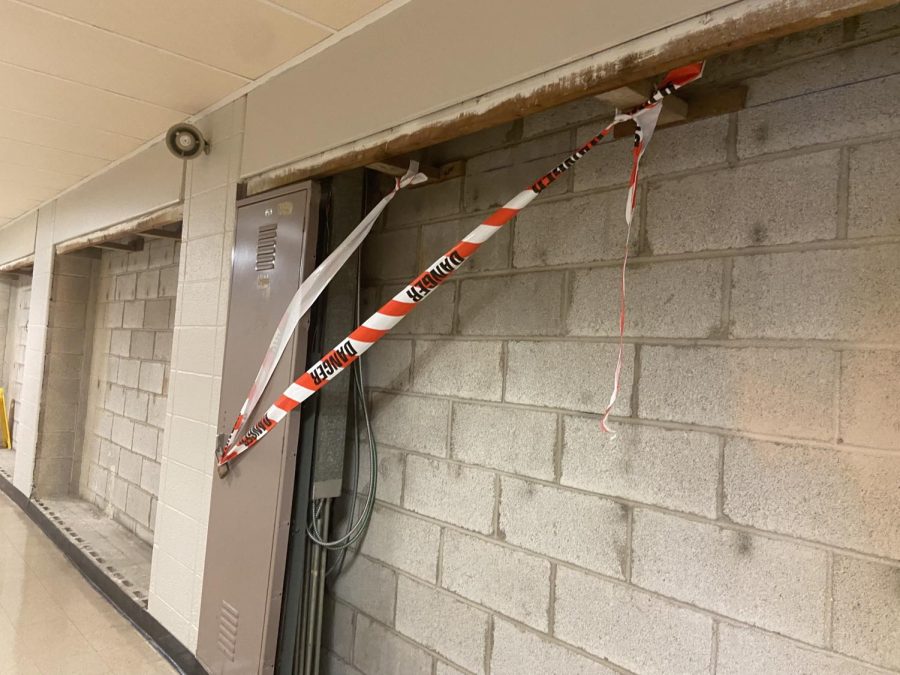
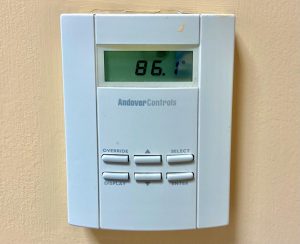

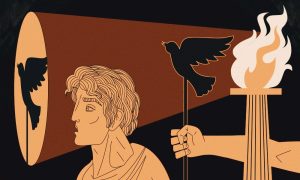

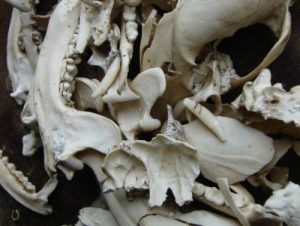

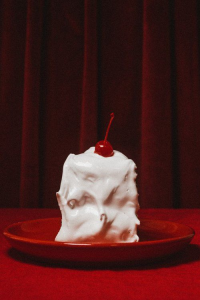


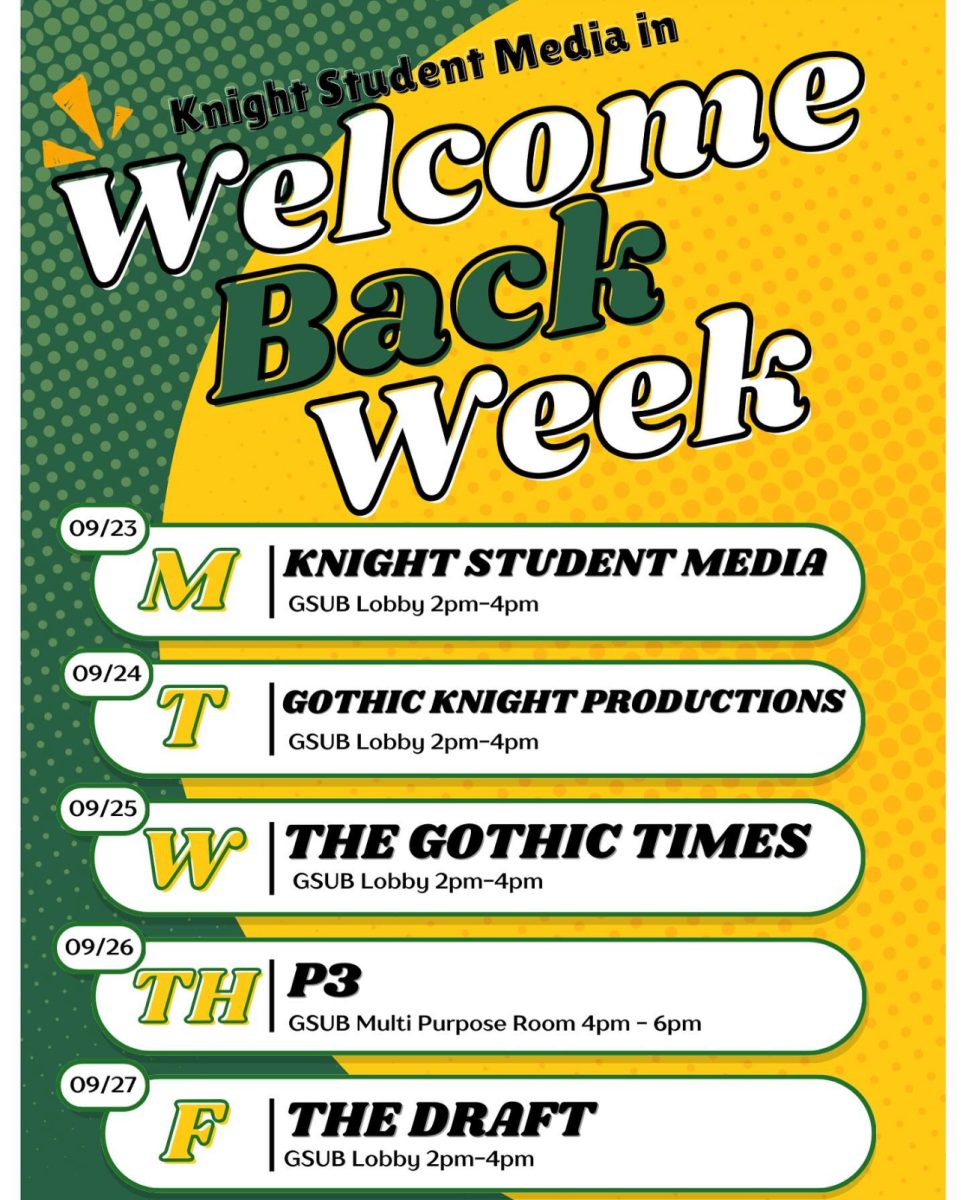
Ellen Garvey • Apr 30, 2022 at 11:45 am
Wow. Great reporting – what a disturbing story. What misplaced priorities NJCU has. So depressing to work and study in such conditions.
The radiators in Grossnickle used to make such a racket it was impossible for people in classrooms to hear one another. Is that still a problem? I’m curious.